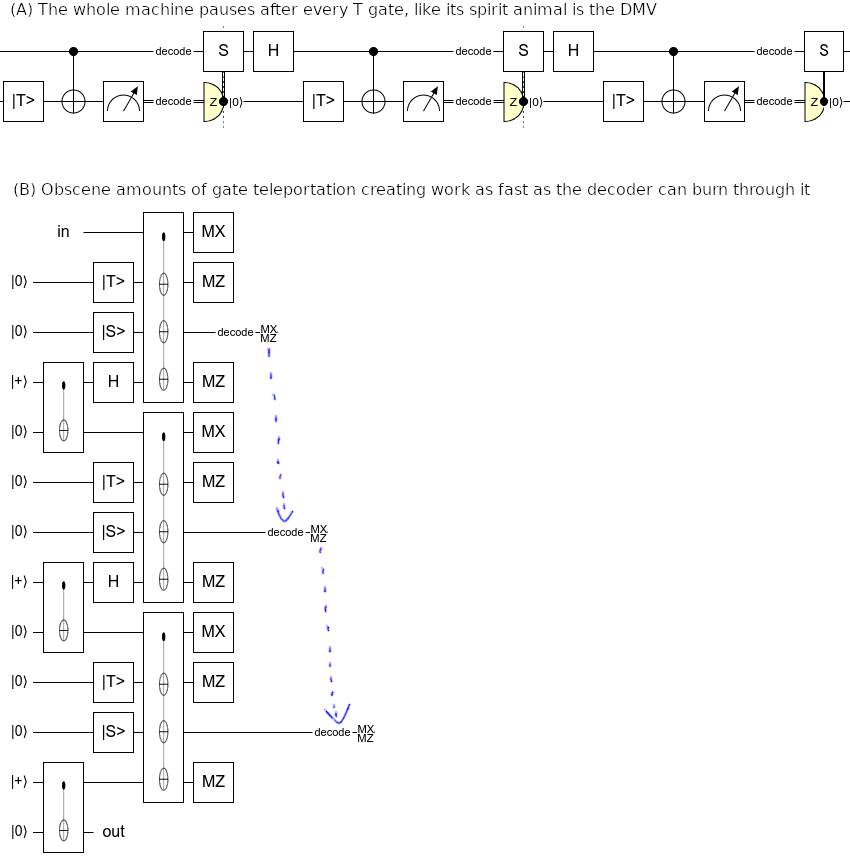Fault-tolerant quantum computation promises to strongly suppress the errors by scaling up the size of the systems. Right now, different physical implementations of proto quantum computers have very different time-scales at which they can do physcial operations ranging from nano-seconds to milliseconds.
Talking to experts I hear two views: Only the error rate is important since the logical systems anyway will not be able to suppress error for long enough time to perform the computation. The other view is that if we do not have fast enough logical operations (say a microsecond), then the combined overheads from error correction and slow gates will push practical advantage for fault tolerant systems very far into the future.
How should I think about the time it takes to perform logical operations?
Is it true that overhead of quantum error correction likely means that logical cycle time (defined by the time each layer of logical gates take) probably will be an order of magnitude slower than physical cycle time?
How deep are logical curcuits standard imagined application of quantum computations? It is easy to find estimates for say the number of gates or T-gates, but what are some estimates of the depth? Is it believed that acutal large scale quantum operations can be performed in parallel so that it really is the depth that is the deciding factor for the time?

